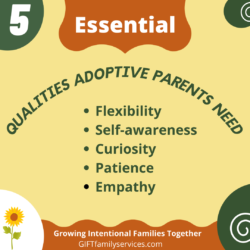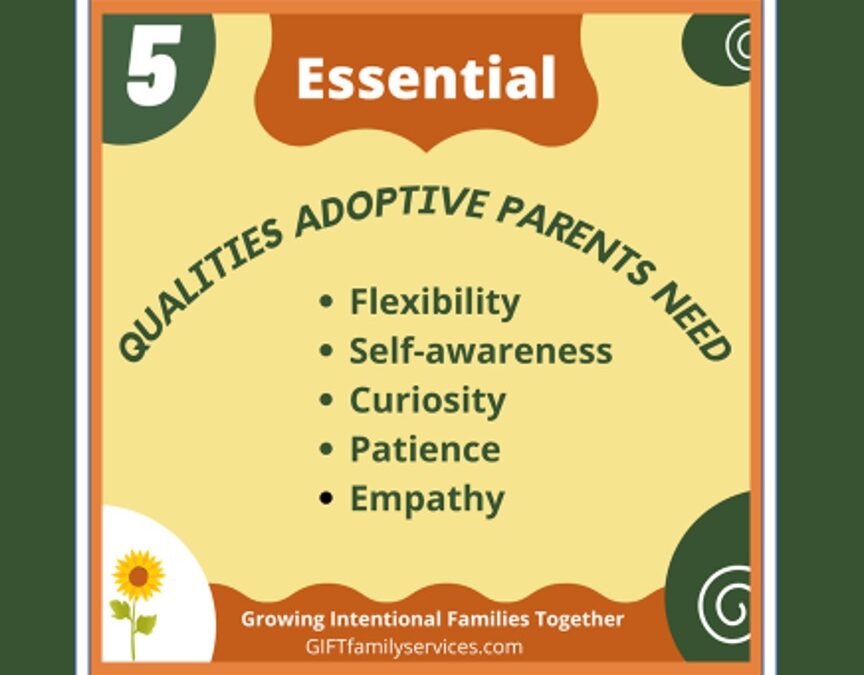 “Parenting is the toughest job that you will ever love,” my grandma who was the mother of 14 children, warned me. I agree with her; Parenting has proved to be the hardest and the most joyful part of my life. Parenting is not for the faint-hearted, the cavalier, or the cock-eyed optimist. Parenting well requires a degree of altruism, commitment, pragmatism, and determination that is impossible to envision before one is on the job. Parenting perfectly is impossible. However, parenting well is achievable–with Intention, preparation, and education.
“Parenting is the toughest job that you will ever love,” my grandma who was the mother of 14 children, warned me. I agree with her; Parenting has proved to be the hardest and the most joyful part of my life. Parenting is not for the faint-hearted, the cavalier, or the cock-eyed optimist. Parenting well requires a degree of altruism, commitment, pragmatism, and determination that is impossible to envision before one is on the job. Parenting perfectly is impossible. However, parenting well is achievable–with Intention, preparation, and education.
To adoptive parent well demands even more of us. A lot more. This is because adoptive parenting is like regular parenting on steroids. In addition to the typical challenges, every member of an adoptive family is shouldering complex grief and searing, ambiguous, life-long losses.
Whether folks tackle those losses head-on or try the ostrich approach, these losses shape the thoughts, emotions, and beliefs of all. Some of this influence is conscious Much of it is unconscious. All of it is significant.
Rather than cataloging all the obvious characteristics of a parent, let’s focus on the unique, additional, and essential characteristics that adoptive parents need. Five of the most essential qualities adoptive parents need are:
- Flexibility
- Self-awareness
- Curiosity
- Patience
- Empathy
Flexibility:
You might think this is an odd choice with which to begin. On the contrary, flexibility is absolutely critical. Every aspect of adoptive family life is touched by the influence of adoption. For example, in addition to the people with whom biological families share relationships, adoptive families also sustain relationships with all of the people from their children’s biological families. It may also include relationships with former foster parents and other significant people from their pre-adoptive lives. (Their presence is felt even if it exists only emotionally and psychically and not physically.) More relationships bring more complexity, more influences, more commitments to be honored, more potholes to be avoided, more compromises needing to be forged, and more apologies to be offered, considered, and accepted. So, it is quite understandable why flexibility is essential!
Empathy:
Adoptive parents need to strengthen their ability to authentically see, feel, and validate the experiences of other family members. We can’t assume we know what is true. We must share the “Brave Conversations” that reveal exactly what each family member is feeling, thinking, believing. Our listening must be steeped in a willingness to hear, understand, and respect the other’s point of view–even if we do not agree with it. We can still respect it. We must consistently telegraph to our kids that we want to hear their stories. That we are strong enough to know them, hold them, share them, and honor them. Our empathy and validation convey to them that we love them enough to know and acknowledge the Hard Realities of adoption. We want them to be secure in the belief that we do not want or need them to sanitize or edit their thoughts and feelings out of fear that we will reject them or love them less. Our love from them is not conditional and does not depend on their pretending to be a shadow of themselves. It must not require that!
Self-awareness:
This is quite different from a self-centric perspective. Quite the opposite, self-awareness allows us to pause and examine what and how we are contributing to a conversation, decision, or relationship. It appraises our own role honestly. Self-awareness requires a hard look at situations, at our own abilities, skills, frailties, and needs. It demands that we surrender the role of The One Who Knows. Believing we are the Expert can magnify our voice at the expense of truly understanding what is going on.
Self-awareness demands vulnerability, a willingness to admit that perhaps we don’t know precisely what is the best choice, or that we don’t know all of the facts, don’t understand all of the ramifications, or sense of all of the feelings that are at stake. Even as we admit this, we become open to learning what is not yet known. This stance invites conversation and connection.
Self-awareness acknowledges that we have our own baggage, wounds, and disappointments. It recognizes the importance of admitting and addressing these factors so that we can mitigate any unconscious fallout and be more intentional of any hidden pressures or motives that might be shaping our actions and beliefs.
Curiosity:
It is said that Curiosity killed the cat, however in parenting, curiosity is the engine that powers connection and understanding. Instead of assuming we know everything we need to know about a situation, decision, action, or event, curiosity looks to learn more. It seeks dialogue. It invites sharing and–when expressed effectively telegraphs our care and interest in knowing, seeing, and hearing our kids’ truth. (For more about the art of listening, read last month’s blog or listen to last month’s podcast.)
Patience:
Patience reflects a commitment to the relationship over the result and eases the need for control which is often a trigger point for most adoptees. Many adopted persons have a strong need for control and this can lead to a lot of head-butting. In real life, unfortunately, parents often run short of patience. We frequently find ourselves wishing we’d mustered more of it. During many sleepless nights, we ruminate and regret that we hadn’t hung on for just a bit longer. Why do we lose patience so often even when we know its importance? Expectations significantly influence our sense of what should happen; when we get too dug into our expectations, this can short-circuit our supply of patience. Nurturing and increasing our ability to sustain patience comes from practice and intentionality. Working on patience pays dividends in our relationships and is worth the effort.
Impatience often arises from discontent with how things are, from a yearning for things to fit our expectations. We become frustrated when things do not flow according to our plan. Sometimes impatience is reasonable and understandable yet it is still often counterproductive. It distracts us from the real issue: what is causing the confrontation and the resistance? When we approach it from this perspective resolution is more easily achieved. Being human, a gap often opens between our good–our best intentions. Still, we must try. Patience takes practice and practice we must.
Nobody–child or parent–likes it when others are impatient or dismissive. We all crave understanding, tolerance, and acceptance. Patience is a great way of expressing that.
Which of these five essential qualities would you choose to strengthen in yourself? What practices can you put in place to help remind you of these skills in the moment? Please post your thoughts on our website or on our Facebook page and let’s share a conversation.
__________________________
- Call us at 1-800-653-9445
- Listen to our podcasts: Adoption Matters: Real People. Real Life. Real Talk and Essentials of Adoption Attuned Parenting
- Watch our YouTube channel
- Read Books written by our coaches
- Click to learn more about Adoption Attuned Certified coaching!



